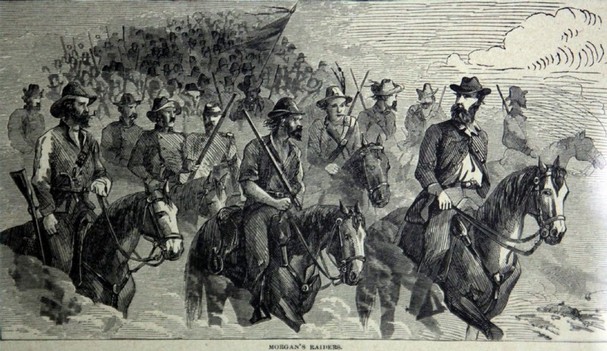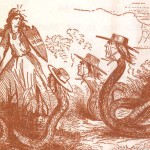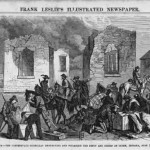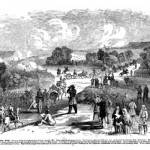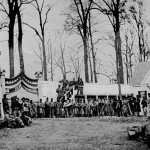As Confederate raider John Hunt Morgan and his cavalry forces swept through southern Indiana in the summer of 1863, they confiscated horses, food, and other property from Hoosiers whose houses, farms, and businesses lay in their path.
They threatened to burn down stores and mills – but agreed to spare the buildings if the owners paid them substantial amounts of cash. Many civilians who were fortunate enough to escape the depredations of Southern troops soon found Union troops, in hot pursuit of Morgan, confiscating their remaining horses and foraging through their larders and fields.
In the wake of Morgan’s Raid, many Hoosiers were ready to submit claims for lost cash and property, but political circumstances in Indiana made that impossible. In the midst of the 1863 session of the state General Assembly, Republicans fled the capitol building in order to prevent anti-Lincoln Democrats from passing legislation.
Abetted by Republican governor—and Lincoln supporter—Oliver P. Morton, the state assembly did not meet again until 1865, and then the claims of southern Hoosiers were caught up in state politics – representatives and senators from the central and northern districts of the state accused southern Hoosiers of sympathy with the South—indeed, of inviting Morgan and his men to enter Indiana—and refused to consider payment of any claims.
The next legislature, which met in 1867, was somewhat more sympathetic to the victims but frugally refused to approve any funds with which to pay the claims.
Although the state did establish a Morgan’s Raid Claims Commission to hear and adjudicate citizen claims, the state itself never paid any money to victims of the raids. Finally, in the 1880s, the United States Quartermaster General’s office took up some cases – but the federal government would only accept claims backed up by proper paperwork for what had been confiscated by Union troops.
Thus, the 1882 claim for $150 for his lost mule from farmer Henry Richard was denied – Richard had offered the mount to a Union soldier whose horse had dropped dead from exhaustion in the pursuit – but as Union troops swept past his farm, Henry Richard had not obtained a receipt.
Source: Stephen Rockenbach, “This Just Hope of Ultimate Payment: The Indiana Morgan’s Raid Claims Commission and Harrison County, Indiana,” Indiana Magazine of History 109 (March 2013).










